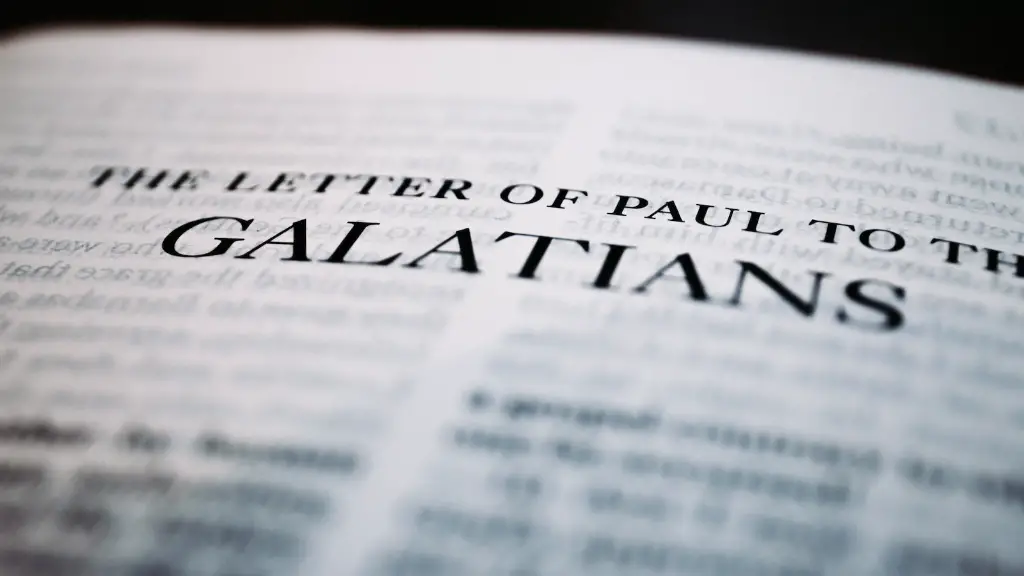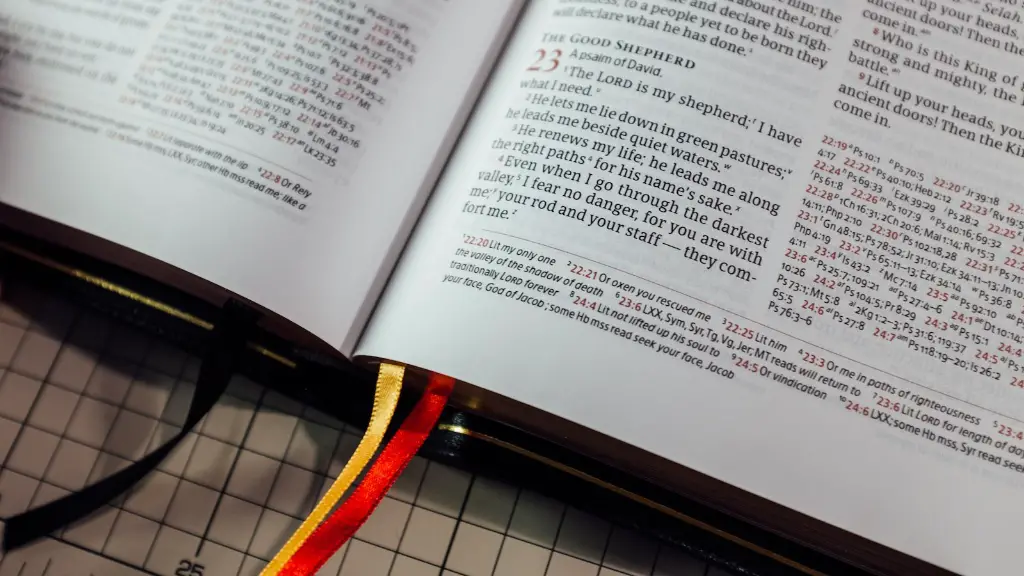As we commemorate the resurrection of Jesus during Easter season, it is important to look into what the Easter story is all about in the Bible. According to Christian belief, Easter commemorates the resurrection of Jesus after He was crucified for the forgiveness of sins. The Easter story is described in several settings in the Bible, wherein we learn that Jesus was betrayed, arrested and ultimately executed by the Romans. It was only after three days that Jesus rose again, as described in the Gospel of Mark
16:1 – 8.
However, while this story is the primary focus of Easter, its meaning extends far beyond the resurrection of Jesus. Through the Easter passages in the Bible, we discover that the resurrection of Jesus had a significant impact on the world, in terms of the significance of the sacrifice He made for our sins, the impact it had on unbelievers and in the salvation of mankind. It is within the Easter passages in the Bible, that we find the promise of eternal life for all who believe in Jesus.
As we examine the Easter passages from the Bible, we find clues to the importance of understanding that Easter is an occasion to reflect on the fact that Jesus’ death was a sacrifice for our sins, and His resurrection a sign of victory over death. By understanding this, we are able to better comprehend the power of the Christian faith, and the power of the Easter story.
In the gospel of John 3:16-17, we read that “For God so loved the world that he gave his one and only, begotten, Son, that whoever believes in Him should not perish but have everlasting life. For God did not send His Son into the world to condemn it, but to save it.” This passage reiterates the true message of Easter, that of sacrificial love, forgiveness, and mercy.
The Easter story is further reinforced by the gospel of Luke 23:44-46, which narrates, “It was now about noon, and darkness came over the whole land until three in the afternoon, for the sun stopped shining. And the curtain of the temple was torn in two. Jesus called out with a loud voice, ‘Father, into your hands I commit my spirit.’ With that he bowed his head and died.”
Together, these passages demonstrate that Easter was not just about Jesus’ death, but instead, it was His resurrection that bore the most significance, as it was the only way for Him to be the fulfillment of the promise of eternal life. The significance of Easter lies in the truth that it marks a new beginning; a new life wherein all believers are given eternal life and the hope of salvation, and the promise of everlasting joy awaits all.
The concept of Easter permeates in other biblical passages as well. Romans 5:1-10 speaks of the great hope that Christ brings us through His death and resurrection. It tells us that “God demonstrates His own love for us in this: While we were still sinners, Christ died for us” (Romans 5:8).
The Significance of Jesus’ Sacrifice
The story of Jesus’ sacrificial death and resurrection is powerful, and its message is everlasting. Jesus died for our sins, taking on all the guilt and shame so that through His death and resurrection, we could be set free. In the gospel of Matthew 27:45-52, we see Jesus on the cross and read, “At three in the afternoon Jesus cried out with a loud voice, ‘Eli, Eli, lema sabachthani?’ which means, ‘My God, my God, why have you forsaken me?’ Then Jesus said, ‘I am thirsty.’ Then they gave him sour wine.”
This is a particularly powerful image, as it arrives at the same time that Jesus’ death and resurrection occur. Through His sacrifice, Jesus brought salvation to mankind and freedom from sin. He demonstrated ultimate unconditional love and willingness to accept every form of punishment, in order to provide hope to believers.
As believers, we are called to remember Jesus’ sacrifice on Easter and to live in a manner that reflects this love. We must offer our whole lives to Jesus for selfless service, which includes leading lives of humility and obedience. We must live in accordance with God’s Word, so we can imitate his example of love and peace.
The Significance of Jesus’ Resurrection
The resurrection of Jesus is one of the most significant events in the Bible. In the gospel of John 2:19-22, Jesus said, “Destroy this temple and in three days I will raise it up,” and indeed, three days later Jesus rose from the dead to prove that He was the Son of God. His resurrection symbolizes triumph over death and the hope of everlasting life.
The resurrection of Jesus did not just mean a literal return from the grave. It also symbolized his victory over sin and death, which is why the resurrection of Jesus is the cornerstone of the Christian faith. It represents a new beginning, and reminds us of the power of faith, the power of hope and the promise of God’s mercy. It is a reminder that no matter our situation, God will always give us a way out and provide us with the hope of everlasting life.
Jesus’ resurrection also brings us hope that He is still alive in our hearts and guiding us in our daily lives. In the gospel of John 20:13-19, we read that Jesus said to Mary Magdalene, “Peace be with you.” This act of peace is symbolic of the hope that the resurrection of Jesus brings us, a hope that reminds us to live our lives with faith, love and respect.
The Impact of the Easter Story
The Easter story is significant to Christians as it teaches us that sin and death have authority no longer, for Jesus rose from the dead to conquer them both. This means that believers have access to eternal life, free from the power of sin, death and the evil one.
This story is encouraging to those who don’t believe and a reminder of the power of love and mercy. It speaks about the unconditional love of God for mankind, and how our faith in Him can lead us to everlasting peace.
Easter is also a great reminder that Jesus is with us in our every day. In the gospel of Matthew 28:20, Jesus said, “And surely I am with you always, to the very end of the age.” This reinforces the idea that Jesus is a constant presence in our lives, and that no matter what we face, He is always with us. Furthermore, through Easter, this message is extended to all believers.
The Easter story is also a reminder of the importance of faith, and of how Jesus leads us to obtain it. In the gospel of Mark 10:45, Jesus said, “For even the Son of Man did not come to be served, but to serve, and to give his life as a ransom for many.” This passage reaffirms the idea that Jesus gave of himself for the benefit of mankind, and it encourages us to put our faith in Him and His plan for us.
The Lessons of Easter
As we celebrate Easter, we need to keep in mind the many lessons that the Easter story teaches us, such as unconditional love and mercy, faith, hope and the power of sacrifice. This year, it is important to remember the sacrificial love of Jesus and the hope that He brings. We need to remember the power of His resurrection, and the promise of everlasting life.
Easter is also a reminder to live selflessly, with love and humility in our hearts. As Christians, we are reminded to live our lives in accordance with God’s Word and spread love and peace to all. We must remember that Easter is not just a celebration of Jesus’ resurrection, but also a celebration of the hope and love that He brings to us.
Finally, we should remember that Easter is more than just a celebration of Jesus’ death and resurrection. It is a reminder of our faith, our hope, and our love. As we commemorate Easter and the hope that it brings us, let us reflect on all that Jesus has done for us and be thankful for the many blessings we have received.
The Symbolism of Easter
Easter is also a time to consider the symbolism associated with the death and resurrection of Jesus. One of the most common symbols associated with Easter is the Easter egg, which is seen as a sign of new life and fertility. This is reminiscent of Jesus’ own resurrection, wherein He brings new life to the dead.
The Easter bunny is perhaps the most well-known symbol of Easter, with its roots in German folklore. It is said that during Easter, the bunny brings candy, Easter eggs and other presents to children as a reminder of Jesus’ resurrection. The tradition of the Easter bunny is still alive today and reminds us of the hope of new life and resurrection.
The Easter lily is also a popular symbol associated with Easter. The lily is traditionally seen as a symbol of purity and innocence, and so it represents the purity of Jesus’ sacrifice and death.
Finally, the cross is the most important symbol associated with Easter. It reminds us of Jesus’ ultimate sacrifice and of His death upon the cross. This symbol has significance not only during Easter, but also throughout the year, reminding us of God’s presence in our lives and the hope that we have in Jesus Christ.
Conclusion
Easter is a time to remember the dying and resurrecting of Jesus Christ and the hope that He brings us. Through examining Easter in the Bible, we can better understand the significance of Easter and the importance of accepting Jesus’ sacrifice and resurrection as signs of new life, hope, and salvation. The Easter symbols of eggs, bunnies, and lilies remind us of the new life and hope that Jesus brings us. Ultimately, Easter is a reminder to put our faith in the hope of eternal life and to spread love and peace to all.




